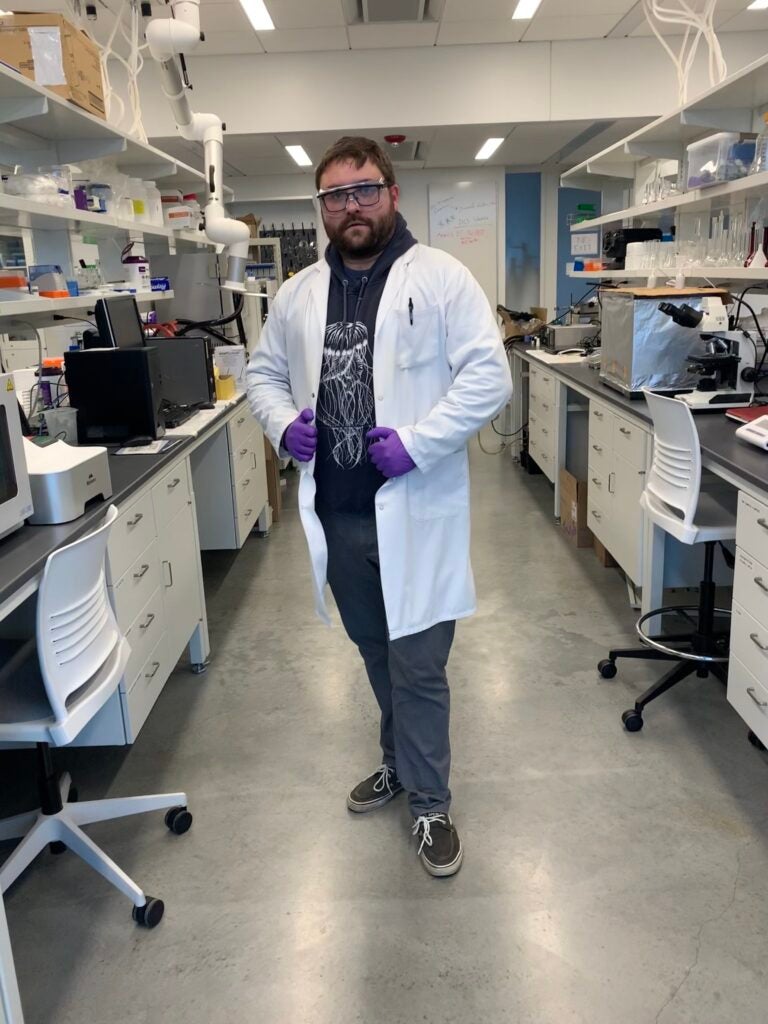- PhD Candidate, SERS Lead
- Chemical Engineering
- Email: timo_kuester@uri.edu

Research
Coastal communities rely on high seawater quality for access to food, recreation and economic success. Increase in water temperature as well as changes to the nutrient concentration due to fertilizer and wastewater runoff can negatively impact the composition of the local flora and fauna and cause potentially harmful conditions due to events such as algae blooms.
Many rural communities rely on private wells to acquire drinking water. To protect those communities from harmful environmental pollutants such as PFAS, that are believed to be immunosuppressive and increase the risk for certain cancers, monitoring is required.
Our research is focused on innovative detection methods for water soluble contaminants at ultra-low concentrations. We are investigating surface enhanced Raman spectroscopy (SERS) for the in situ detection of PFAS as well as nutrients to overcome some of the limitations of commonly applied measurement methods. SERS is known to be capable of single molecular as well multi component detection with data acquisition times of seconds to minutes. For SERS to be effective analyte molecules are required to be within a few nanometers of nano-structured noble metal surfaces, which is challenging in an aqueous in situ measurement setup. For this reason, the emphasis of our work lies on the development of new methods to increase the affinity of SERS substrates to target analytes.
Selected Publications
- Poonia, M., Küster, T., Bothun, G.D. Organic anion detection with functionalized SERS substrates via coupled electrokinetic preconcentration, analyte capture, and charge transfer, ACS Applied Materials & Interfaces, 14, 20 (2022) 23964–23972.
- Küster, T., Bothun, G.D. In Situ SERS detection of dissolved nitrate on hydrated gold substrates, Nanoscale Advances, 3 (2021) 4098-4105.
